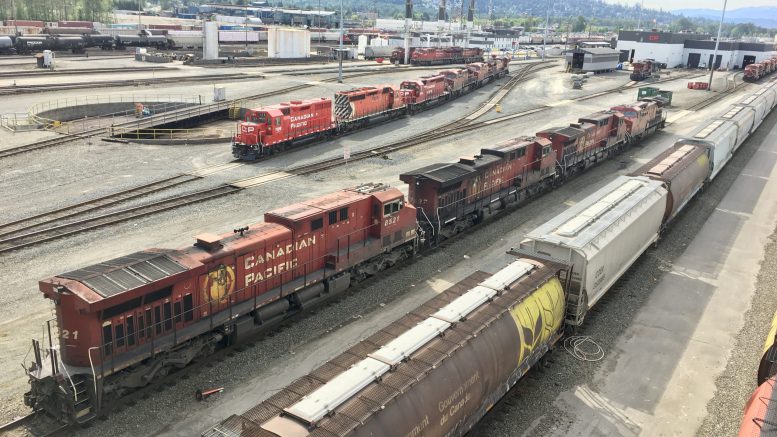Canada’s rail disruption has ended after Ottawa imposed binding arbitration but cargo piled in loading yards could take a few weeks to sort out, officials said.
Workers at Canadian National Railway (TSX: CN; NYSE: CN) returned to work on Friday after federal Labour Minister Steven MacKinnon referred negotiations to binding arbitration, which ended a CN lockout that began midnight Wednesday.
Employees at Canadian Pacific Kansas City Railway (TSX: CP; NYSE: CP) resumed work just after midnight Monday morning although the company had wanted them at work on Sunday.
The Teamsters union told its thousands of members to delay their return. It called off a new strike at CN on Monday morning that it had circulated before the weekend. But it said on Monday it would take the Canada Industrial Relation Board to federal court for its back-to-work order.
“This decision by the CIRB sets a dangerous precedent,” Paul Boucher, president of the Teamsters Canada Rail Conference, said in a statement. “It signals to corporate Canada that large companies need only stop their operations for a few hours, inflict short-term economic pain, and the federal government will step in to break a union.”
Damaged reputation
Canada frequently sees rail disruptions. The 2023 West Coast Ports strike, the pandemic and civil disruption in the form of random and sporadic rail blockades have damaged Canada’s reputation as a reliable trading partner, the national mining association contends.
“Canada can and must do better at creating a stable and predictable logistics supply chain that restores greater confidence in Canada’s reliability as a trading partner,” Pierre Gratton, the Pierre Gratton, association’s president and CEO, said in a statement. “Government should make every effort and use every tool at their disposal to address this unprecedented disruption.
“Failure to do so is an abdication of leadership and an abandonment of responsibility.”


Be the first to comment on "Canadian rail lines restore service but supply snags need to be smoothed"